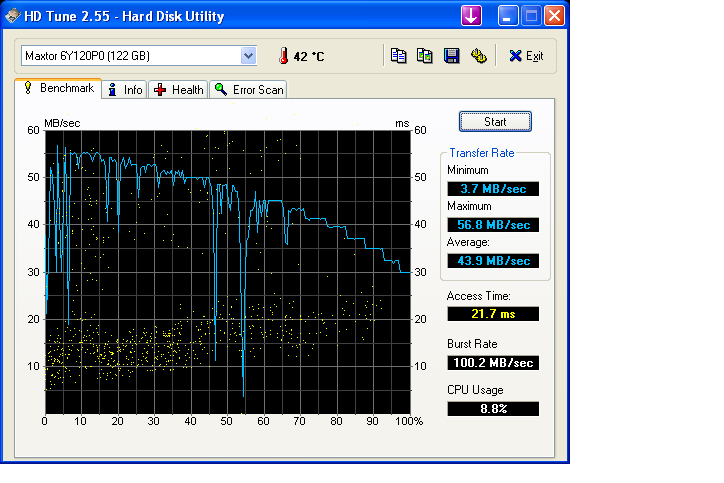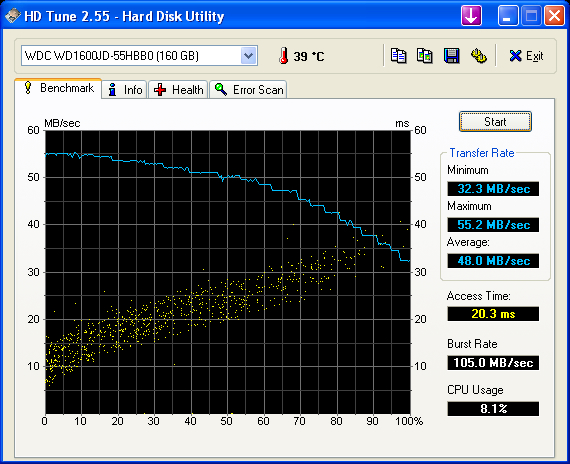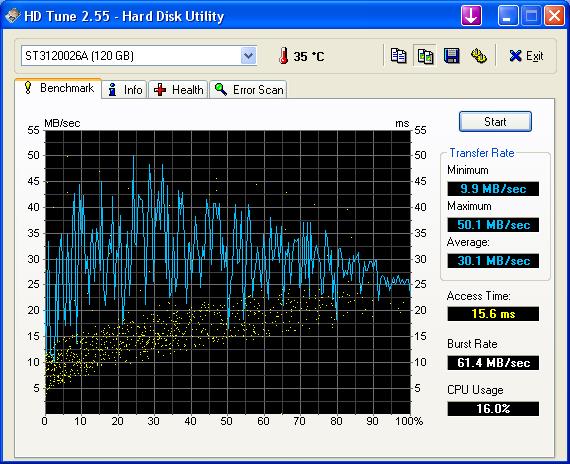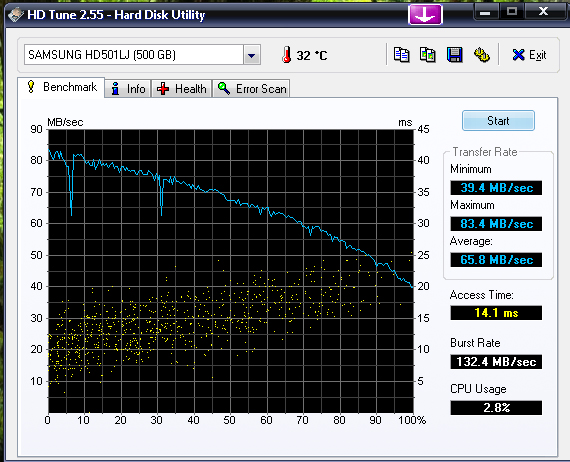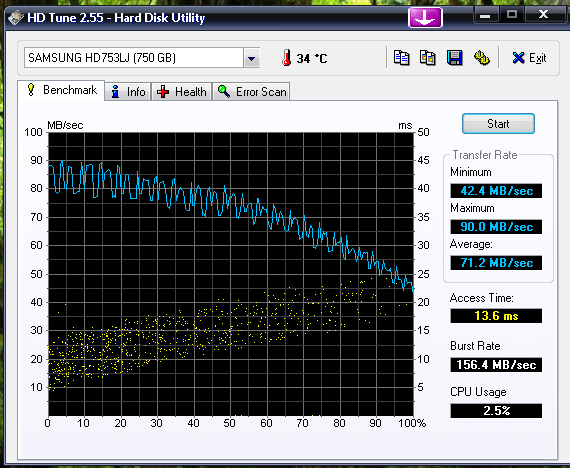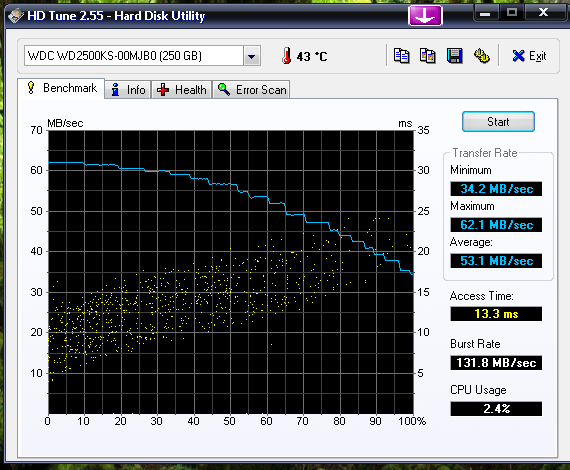Now meet the future: SSDs devices.
Simply saying SSDs are huge USB-Sticks, that look like HDDs and can be plugged into your PC like normal HDDs.
SSDs have no rotating disks, that's why it's so wicked. No noise level, no fear to damage your laptop disk.
Their flash technology were pimped so much, that they dont lose long stored data like USb-Sticks.
Access time and data rate stability are unreached. Too bad their are still expensive (several hundreds of dollar for 32GB).
1 SSD
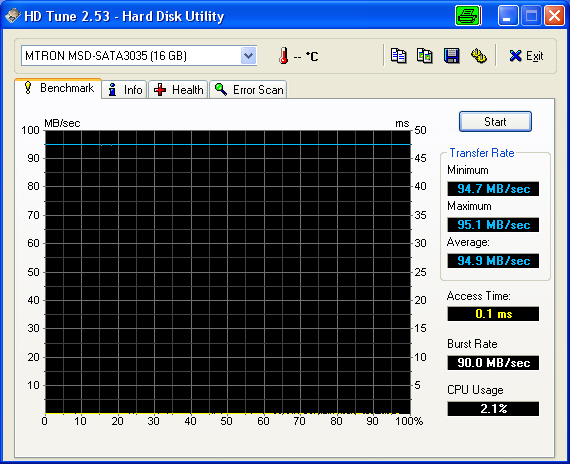
2 SSDs Raid 0:
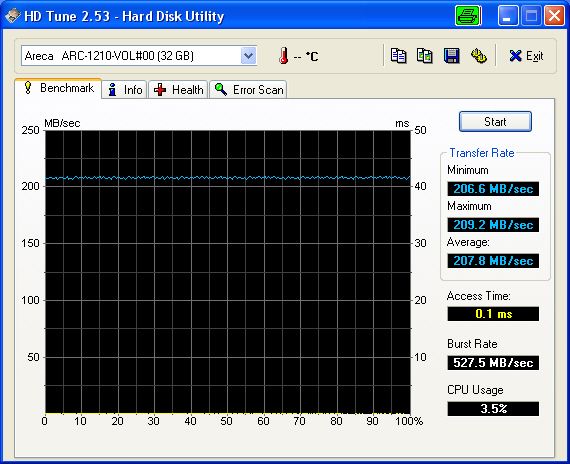
3 SSDs in Raid 0:
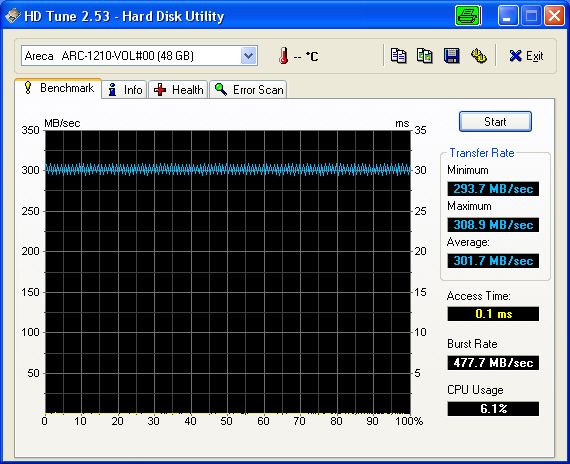
4SSDs in Raid 0:
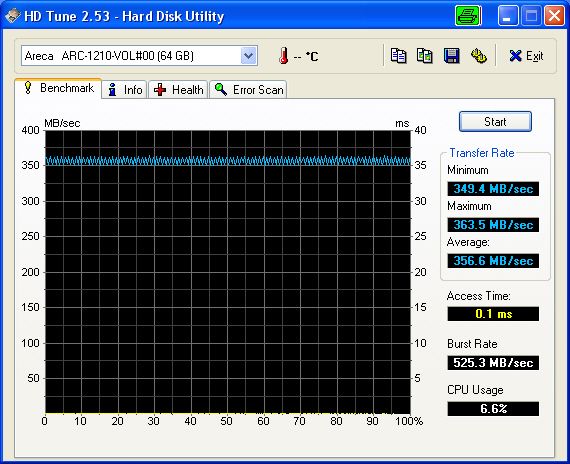
4 SSDs in Raid5:
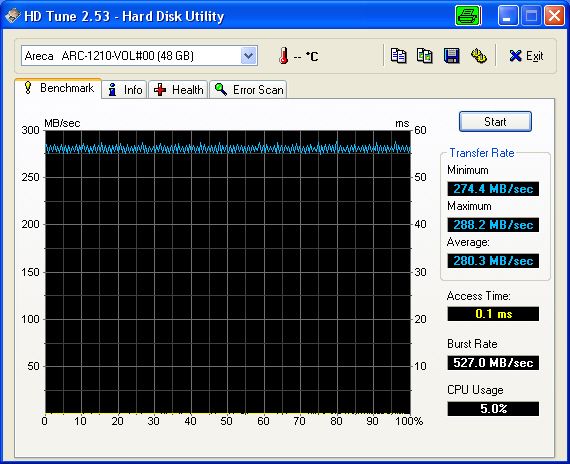
Impressive how they doubled / tripled their transfer rate when added to Raid0.
Any harddrive would double performance when put in pair with another one in RAID 0. On the other hand, if they'd gotten a better RAID controller, they would actually have been able to scale to more then just 3 disks.
The main problem with SSD's is still random write access, which is very sporadic and often worse then normal harddrives.
Like Timo mentioned, i'm looking forward to OCZ's new MLC SSDs that are very affordable. They will likely not be the fastest there are, but with native SATA II interface, and decent looking performance, they could very well be the start of some real competition in price/performance to normal drives.







